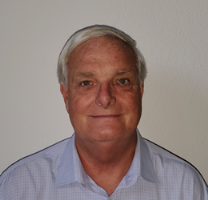Choosing a Flexible Formula
FEATURED PAPER
By Dr. Dale S. Deardorff
Business Management, CSUCI
MVS, California State University Channel Islands
United States
Abstract
Modern Business Leaders are constantly required to make organizational decisions that impact the effectiveness and efficiency of their efforts. As the current working environment becomes more hyperbolic in constant change, with unrelenting amounts of data and constant business challenges, leaders need new techniques and models for decision making. The clarification of the difference between a Simple, Difficult and Complex decision are unclear at times causing consequential impacts. By adding a flexible format for decision making, we can embrace uncertainty and evaluate many different alternatives while still being able to make decisive judgements.
Keywords: Pracademic, Business Leadership, Organizational Decisions, Simple Decisions, Difficult Decisions, Complex Decisions, VUCA, Organizational Change.
Introduction
The purpose of this paper is to explore the current leadership decision making challenges, philosophies and strategies to optimize organizational success. Firstly, we need to understand the possible contributors to poor decision making. Traditionally, they are based on three “Wrongs”:
- Wrong Comparisons
- Wrong Time
- Wrong Information
Wrong Comparisons
When making a decision, the logical model that is created can be based on rapid comparisons without thinking clearly about the options creating a faulty comparison. This would be where you compare your decision options using representative logic that is not equal (Cherry, 2022).
For example, how far out of your way would you go to save $25? If you could save $25 on a $75 item by driving 15 minutes out of your way, you would probably do it. But if you could save $25 off a $10,000 item, would you still be willing to go out of your way to save the money? Even though both examples involve the same amount of savings, in most cases, people are less willing to travel further to save money on the more expensive item.
Wrong Time
When making a decision, we may find that we are pushed to create it based on an arbitrary timeline. There is a statement that you can have a decision made right now, or you must wait until it’s fully understood before you get the right decision. Additionally, the other side of the situation is based on a leader who has the right information to make the decision, but purposely resists making it until they have additional information. This is called decision paralysis and can be caused by young leaders who are afraid of the consequences of making a decision.
Wrong Information
When making a decision, we may not have the required information to make it correctly. There is an information gap or misinformation that the decision maker is using. This can be a situation where the decision is based on technically inaccurate information. This can happen many times because we don’t understand the complexity of decision characteristics. If you add the lack of decision making skills, processes and a leader who does not understand how to break decisions down into different types, you have a clear formula for problematic leadership.
More…
To read entire paper, click here
How to cite this paper: Deardorff, D. S. (2024). Pracademic Leadership Adaptive Decision Making – Choosing a Flexible Formula; PM World Journal, Vol. XIII, Issue II, February. Available online at https://pmworldlibrary.net/wp-content/uploads/2024/02/pmwj138-Feb2024-Deardorff-Pracademic-Leadership-Adaptive-Decision-Making.pdf
About the Author

Dr. Dale S. Deardorff
California, USA
![]()
Dr. Dale S. Deardorff worked for Boeing Integrated Defense Systems and Space Propulsion Development divisions as a Project and Program manager for over 20 years. He worked for the Lockheed Burbank “Skunk” works and Aircraft division for almost 10 years and a high technology Valencia California start up for a couple of years. This 30 plus years’ experience is a “Pracademic” blending of commercial, military, government, NASA and high technology organizations. Dale has taught Project Management “on-line” for multiple universities as an adjunct instructor since 2003 and continues to contribute to project management methodologies and philosophies as a current thought leader.
He created the Rocky Peak Leadership Center in 2010 and has helped modern organizations as an enterprise and executive consultant in the areas of thinking methodologies, Innovation and leadership training and facilitation. Dr. Deardorff volunteers with youth leadership programs and supports local youth training in the areas of personal mastery and effective collaboration techniques.
Rocky Peak Leadership Center – www.rockypeakLC.com
Dale S Deardorff contact – d.s.deardorff@gmail.com
To view other works by Dr. Deardorff, visit his author showcase in the PM World Library at https://pmworldlibrary.net/authors/dr-dale-s-deardorff/









